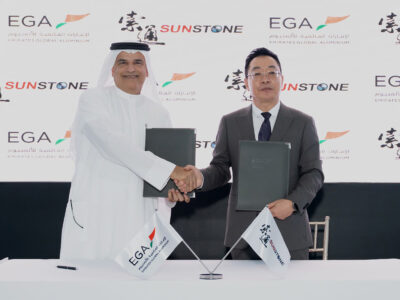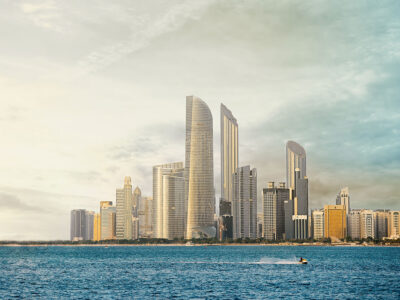Significant progress towards Arab women’s economic empowerment has been achieved this year, with the UAE’s decree on equal pay for equal work being one of those milestones.
But the “journey ahead is still long,” said Salma Al-Rashid, Sherpa (organiser) for Women 2020 (W2020), in an interview with Arabian Business.
Covid-19 has slowed down the rate of this progress, given the high percentage of women who work in sectors which have been drastically impacted by the pandemic, said Al-Rashid, who is chief advocacy officer of the Al Nahda Philanthropic Society for Women, a Saudi-based organisation.
Speaking to Arabian Business on the second day of the W20 summit, Al-Rashid discussed the key recommendations from the W20 communiqué which was presented to the G20 leadership at the summit’s virtual opening ceremony on Wednesday.
How has Covid-19 impacted the progress made towards women’s economic empowerment?
SR: The Covid-19 pandemic has disrupted all our lives completely but it is a gendered pandemic; it impacted women much more than men. This is because women make up 70 percent of the front line workers. Also, there are 740 million women in the informal sector.

So you can imagine how that impacts their livelihood: they are in the informal sector so they cannot reap the benefits of the social protection mechanisms they would have been able to access in the formal economy.
So we are not saying “oh be kind to women”. No, the only way to ensure an equitable economic recovery is when we include women and engage them and address the gendered impact of this pandemic on women.
[The informal economy includes activities, enterprises, jobs, and workers that are not regulated or protected by the state. The concept originally applied to self-employment in small unregistered enterprises.]
How about its impact on women in the Arab region?
SR: I don’t have figures on how Covid has impacted women in the region but we can draw assumptions based on the figures we know.
We know that in the MENA region specifically, there is a huge majority of women who we call NEETs (Not in Education, Employment or Training) and this was before the pandemic.
The pandemic only exacerbated pre-existing inequalities. So if these women were not in employment, education or training before, now the pandemic is adding greater pressure and risk on these women, especially in the region.
You mentioned earlier that women should be part of the economic recovery. What are some tangible ways to achieve this?
SR: One of the key things we are calling for at the W20 is inclusive decision making. We need to ensure that women are represented at every point of the decision-making process.
This goes beyond having women as CEOs or on boards. It’s really about asking ourselves at every point of this decision-making process: are women being represented? Are they part of the committees that put together the recovery plans? We need that gender lens and that diversity in these teams.
Another thing is addressing the care economy. We know and we recognize women’s roles as caregivers. Because of that, we need to ensure that we have accessible, high quality and affordable care.
The whole care economy is really a multiplier because it can create jobs and employ women and it can help women enter the labour market.

For example, we are receiving a lot of reports which indicate that, because of the pandemic, couples are struggling with who stays home and who goes back to work. Most likely it is women who stay home even though sometimes they are the main breadwinners.
How does the progress towards economic empowerment that women in the Arab region have achieved compare to their global counterparts?
SR: One thing worth noting is that in the World Bank’s Women, Business and the Law report, which tracks laws that affect women across 190 countries, six of the top ten countries that improved the most in 2020 were from the Middle East.
Saudi Arabia and the UAE were among the most to improve in six of the key areas measured such as women’s mobility, retirement age, economic recovery or wages.
We have seen a measured and serious will to move in the right direction. There is still much more to be done, and we need to ensure that Covid-19 will not set us back, but we have seen improvement in the MENA region.
Can you elaborate on this point?
SR: Despite the progress we see measured in the World Bank report, discriminatory laws continue to threaten women’s economic security, career goals and work-life balance.

In the Middle East, women have only half the legal rights of men so there is still an area for improvement if we think of it this way.
Eliminating all forms of discrimination against women would raise the global productivity level by 40 percent. Women are an untapped potential and, in our region, it is even more magnified.
What were some of the unique elements of this year’s W20 communiqué?
SR: In the W20 we have three main focus areas: women’s financial inclusion, labour inclusion and digital inclusion. Every year, every presidency introduces a new topic they feel is relevant.Women entrepreneurship has historically been part of the financial inclusion discussion and it tended to take over that discussion. This is an issue because we recognize that, even in G20 countries, there are millions of women who are unbanked and don’t have access to financial services.
So if we focus on entrepreneurship, which is important too, we miss out on the banking discussion. To give both topics the focus they deserve, we pulled out entrepreneurship and had it be a cross-cutting topic which is relevant to the three key areas.
We also introduced inclusive decision making: you cannot achieve anything without ensuring that women have a seat at the table where decisions are made.
We are also doubling down on what our Japanese colleagues have initiated on holding G20 countries accountable.





